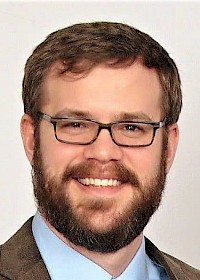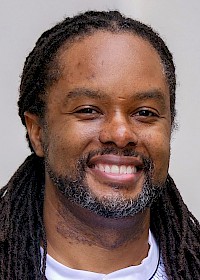Cultivating Racial Resilience
An immersive experience of implementing anti-racist practices in mind, body, spirit, and community
This project will connect congregational clergy, lay leaders and youth with training around anti-racism and justice, and will present these principles as core to their churches and communities. It is made possible by a grant from the Lilly Endowment Inc. Pathways for Tomorrow Initiative.
We are currently accepting applications for 10-15 appointed clergy and ministry leaders (i.e. people whose full- or part-time work is in a ministry context) who are eager to learn more about anti-racism from a theological perspective and desire to apply these principles to an existing or new ministry project. At this time, we are only able to accept U.S.-based applicants.
Summary of the experiences
Racial Resilience is an intensive anti-racism training method that helps individuals develop an anti-racist conscience and act as change agents within their institutions to help them develop an anti-racist ethos. Our unique approach utilizes compassion-based contemplative practices as the foundational lens through which we interpret the impact that racialization has on our bodies and worldview. From this foundation, we teach participants key critical race theories so that they can authentically and sustainably create and implement an anti-racist project within their communities.
What sets this approach apart from others is that most anti-racism training programs ask participants to set aside the complex feelings that arise when we talk about race and racism. Left unattended, these feelings and emotions create the conditions for racial stressors such as racial anxiety, stereotype threat, and weathering. Rather than dismissing these feelings as unhelpful, we believe these feelings are effective guideposts for sustainable anti-racist work.
Over the next two to three years, we will be leading three cohorts through this process. Each cohort will focus on participants from different areas of the theological landscape. Our first cohort invites appointed clergy and ministry leaders to apply. Our second cohort will invite laity and religious leaders to apply. Our third and final cohort will invite young adults to apply.
Application form and due date
- Applications have closed. Candidates will be notified of their acceptance by March 17.
- If you are a lay leader or lay person interested in applying for our second cohort, the application will be available in May 2025. Please check back then.
- If you are a young adult (18-35 years old) interested in applying for our third cohort, the application will be available in December 2025. Please check back then.
Attendance and costs
- For in-person meetings, travel expenses, including flight, lodging, and food, will be paid by MTSO through reimbursement. Our goal is that accepted participants give their time and effort to this process and that we bear the financial costs.
- Pre-reading for Racial Resilience is required and all reading materials for this process will be made available and/or reimbursed for accepted participants.
- Racial Resilience is a highly focused process. As such attendance at all events is mandatory. If your schedule does not currently allow full commitment, we recommend that you do not apply at this time. We do, however, understand that life happens. We will work with participants committed to this process when life events occur.
Racial Resilience program timeline
Racial Resilience is a three-phase process that will take place over approximately three academic semesters. Phase descriptions and the first cohort schedule are outlined below.
Phase 1
- This phase is the most hands-on and intense for participants. We focus on inculcating the requisite skills for practicing anti-racism compassionately and sustainably. It is particularly focused on the internal dynamics necessary for sustaining anti-racism work and is grounded in spiritual practices.
- This phase involves the most “homework,” so to speak. There are assigned readings, exercises, group work, meditations, short writings, and more.
Phase 2
- Phase 2 involves aligning one’s gifts, talents, and skills, with the needs of their communities to discern an anti-racist project that is both relevant to their community and sustainable and interesting for the participant. The discernment process is often accompanied by uncertainty and waiting.
- Participants will engage a Design Thinking process oriented around discerning an anti-racist project they will create and implement. In addition, we will invite experts from a wide range of organizations to share about their area of expertise and how they practice anti-racism in their context. Given MTSO’s institutional commitment to food and ecology, we will have a particular focus on ecological anti-racism. Our goal is to widen conceptions of how to practice anti-racism so that we can motivate and inspire participants to create anti-racist projects moored in relevant and meaningful spiritual practices.
- There will be small seed money available for participants to help them get their anti-racist projects off the ground.
Phase 3
- In this final phase, participants will begin implementing their anti-racist projects. Meetings will be less frequent and/or as needed.
- Our role as facilitators at this stage is to be cheerleaders and trouble shooters. Essentially, this is tough work, and we want participants to take the initiative, but still have support when needed.
- This phase and the process as a whole will conclude with an in-person gathering where we discuss how participants’ projects and spiritual lives are going and what they have learned during this process, as well as what more they want.
Phase 1 dates
First Cohort Dates (clergy and ministry leaders)
- April 1-4 (in person): Grounding
- Tuesday, April 1: Group Gathering Dinner
- Wednesday, April 2: 8 hours teaching
- Thursday, April 3: 8 hours teaching
- Friday, April 4: Drive or fly home
- April 8, 1-3 p.m. Eastern – Zoom: Self-compassion
- April 15, 1-3 p.m. Eastern – Zoom: Self-compassion for racialized parts
- April 22 – (Easter): No meeting
- April 29, 1-3 p.m. Eastern – Zoom: Compassion for beloved other
- May 6, 1-3 p.m. Eastern – Zoom: Compassion for difficult other
- May 13 – (Graduation) no meeting
- May 19-21 – (in person in Los Angeles, California): Action and transition to phase 2
- Monday, May 19: Dinner and gathering at the LOFT in LA
- Tuesday, May 20: 8 hours teaching
- Wednesday morning, May 21: conclude phase 1 and transition to phase 2, fly home.
Tentative dates for phase 2 (Discerning antiracist project)
- Monday, Aug. 25-Wednesday, Aug. 27, 2025 (first week of classes at MTSO)
- Monthly Zoom gatherings to discuss discernment process and project ideas.
- An in-person gathering at MTSO in early December to share the framework of the projects among fellow cohort participants.
Prospective dates for phase 3 (Implementing antiracist project)
- In this phase, we will meet as needed. Participants will implement their antiracist projects and our role in this phase will move from facilitators to support. Meetings will be on an individual basis or with the cohort as the cohort decides together.
- The closing meeting will be an in-person gathering at MTSO in May 2026.
Meet the facilitators and partners
Facilitators
- Christopher Carter’s teaching and research focuses on Black and Womanist theological ethics, Ecotheology, and Food and Religion. He approaches religious studies as a liberation ethicist committed to exploring how the moral economy of U.S. religious thought and culture impact the everyday lives of marginalized populations, particularly African American and Latinx communities. He is active in the leadership of the American Academy of Religion, where he serves as a steering committee member of both the Religion and Ecology and the Animals and Religion groups. Dr. Carter is an ordained elder within United Methodist Church and currently serves as an associate pastor at Westwood United Methodist Church.
 Dr. Seth Schoen
Dr. Seth Schoen
- Seth Schoen's research and teaching interests are in contemplative and spiritual practices, especially the cultivation of compassion. He is committed to educating people about the power of compassion and the way that race and racism impact our worlds, from the macro structures that organize our society to the internalized structures that permeate our relationships and structure our minds and bodies. He understands anti-racism as a process of spiritual formation. Offering tools for people to create a foundation of compassion that fuels an anti-racist way of life energizes and motivates his research and personal interests. He enjoys being part of compassion-based processes in which people gain insights about themselves and others.
Partners
Katherine Dickson
- Director of Vocational Discernment and Community Engagement; Director of Field Education
- Title IX and ADA Coordinator
Richard Hinkelman
- Grant Liaison supporting the COO in growth, management and administration of MTSO’s grant portfolio
- Assist Director of Enrollment Management with recruitment
- Worship and technology coordinator for chapel services and campus events
April Casperson
